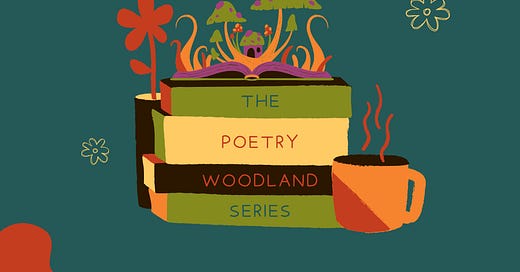The Poetry Woodland Series: "Sonnet—The Lotus"
Public domain poetry readings & analysis. Vol. 3 | Toru Dutt's poems 🪐
The Lotus*
by Toru Dutt
Love came to Flora asking for a flower That would of flowers be undisputed queen, The lily and the rose, long, long had been Rivals for that high honour. Bards of power Had sung their claims. "The rose can never tower Like the pale lily with her Juno mien"-- "But is the lily lovelier?" Thus between Flower-factions rang the strife in Psyche's bower. "Give me a flower delicious as the rose And stately as the lily in her pride"-- "But of what colour?"--"Rose-red," Love first chose, Then prayed,--"No, lily-white,--or, both provide;" And Flora gave the lotus, "rose-red" dyed, And "lily-white,"--the queenliest flower that blows.
*This poem is in the public domain!
Toru Dutt (Tarulatta Datta - Bengali: তরু দত্ত) was born on March 4, 1856, in Kolkata, India. She was an Indian Bengali poet, translator, and essayist, who wrote in English and French from British-occupied India. She is one of the founding figures of Indo-Anglian literature, alongside Henry Louis Vivian Derozio (1809–1831), Manmohan Ghose (1869–1924), and Sarojini Naidu (1879–1949). Dutt wrote several volumes of poetry in English and a novel—the first written by an Indian writer in French. Her writing explores themes of longing, loneliness, nostalgia, and patriotism. She died of tuberculosis on August 30, 1877, at age 21. Please read more about her life and work here.
I love how simple, yet powerful this poem is. For some quick context:
This poem is a type of sonnet, a form which is typically used to explore romantic love & desire.
Flora was the Roman goddess of flowers, spring, and land fertility.
Juno was the queen of the gods & “mien” means appearance/demeanour. “Juno Mien” therefore alludes to royalty.
In Greek, the name Psyche means "soul.” Psyche was the goddess of the soul.
The lotus flower is the national flower of India—present in scripture, ancient traditions, and mythology. “The Bhagavad Gita considers it a metaphor for detachment: Just as the lotus remains untouched by the muddy waters in which it grows, human beings should rise above worldly attachments. The lotus also symbolizes knowledge and beauty as Saraswati, the goddess of learning, is depicted as seated on it.”
Love/Desire, in this poem, is personified in conversation & decision-making power with the Greek/Roman goddesses, which to me reads as deep adoration & pride in India’s culture & Hinduism. Lilies & roses, though unquestionably elegant, dominate literature as ‘the’ symbols of beauty. In her poem, Dutt portrays them as individualistic & separate, unlike the collectivist & community-oriented mindset presented by the blending of their features & colours. This is why it’s so brilliant that she’s employed the Roman/Greek goddesses to enact a conversation here, using the personification of Love/Desire to enter, gently requesting & choosing a different approach.





